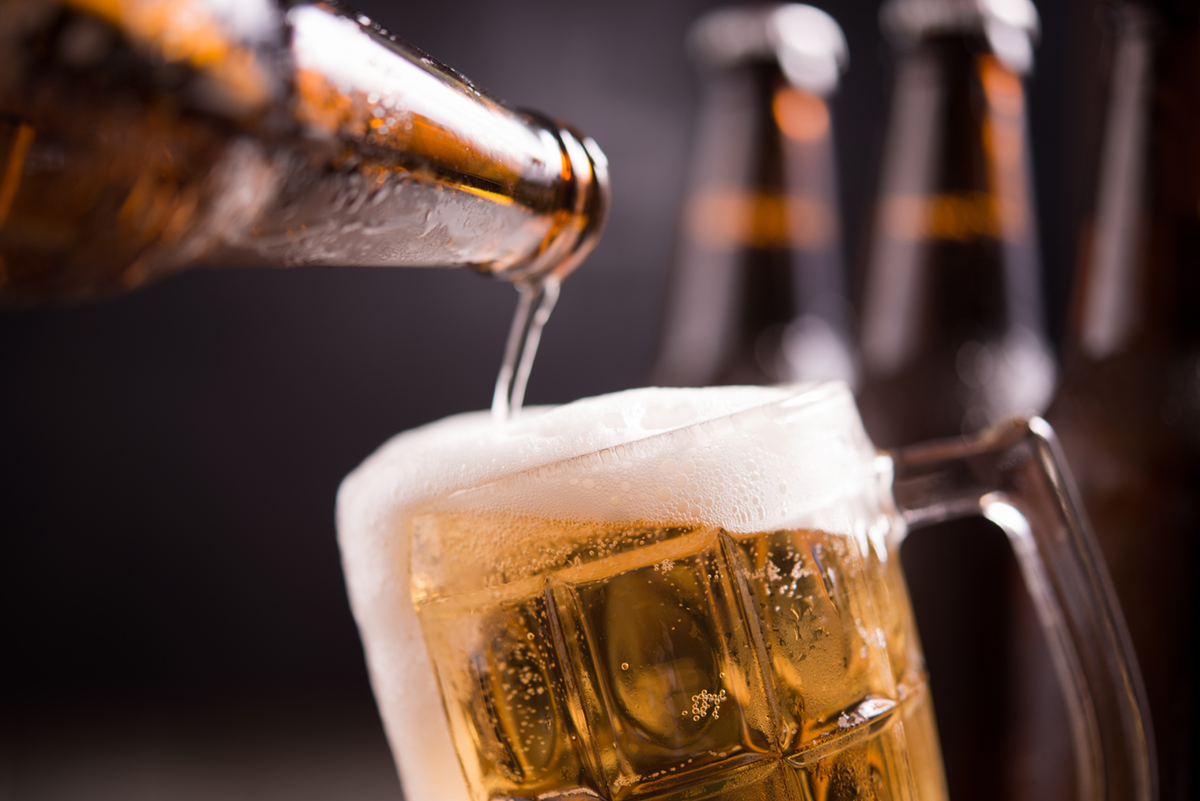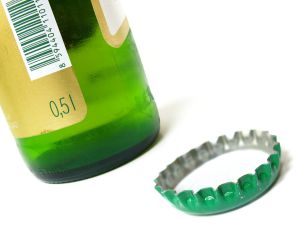For many centuries and in many languages, we have raised our glasses to one another and toasted good health.

In many languages, we have raised our glasses to one another and toasted good health. Perhaps we realized subconsciously that our foam-topped beer mugs were packed with compounds that did us good; perhaps it was just wishful thinking. In present times, hard-headed scientific examination has confirmed our best hopes – the beer that brings enjoyment, refreshment, and convivial times with friends can also contribute to a healthier life. There is growing evidence to support the nutritional and health benefits of moderate consumption of beer as part of a healthy lifestyle. Below is a list of reasons that explain why beer could be good for you.
Benefits of beer
Cancer prevention
Xanthohumol, a prenylflavonoid derived from hops, is known to prevent cancer. Its use is considered to be a preventative treatment against prostate and colon cancer and even may be a form of hormone therapy for women. In a recent study conducted by researchers at the Linus Pauling Institute at Oregon State University in Corvallis, drinking beer was shown to have potential promise in preventing prostate cancer and prostate enlargement.
Vitamin supplementation
Beer is made from grains, water and yeast. Grains commonly used are barley and wheat, both of which are loaded with a variety of vitamins that survive the fermentation and filtering process. It provides modest B vitamins amounts, plus more useful quantities of magnesium, selenium and other trace elements. Beer is known to the level of vitamin B6 in a beer drinker’s blood which has been shown to decrease the level of homocysteine which increase the chances of heart disease.
Reducing chances of heart disease
Studies show that one drink a day for women or up to two drinks a day for men reduces your chances of strokes, heart and vascular disease. It is said that light to moderate drinkers decreases the chances of suffering a stroke by 20%. A researcher at the Texas Southwestern Medical Center reported that those who consume moderate amounts of beer (one to two a day) have a 30-40% lower rate of coronary heart disease compared to those who don’t drink.
Cholesterol levels
Alcohol drinkers have been seen to have higher levels of high-density lipoprotein (HDL) cholesterol, often called the “good” cholesterol, which is a protective form of blood fat. The alcohol drinkers also have lower levels of fibrinogen, a protein that promotes blood clots, as well as elevated levels of other molecules that prevent the clotting and stickiness of blood cells. Also, beer contains polyphenols, which cut levels of lousy LDL cholesterol.
Reduction in kidney stones
Beer consumption may reduce the risk of developing kidney stones. A Finnish-U.S. study of beer-drinking, middle-aged men published in the American Journal of Epidemiology stated that there was a 40 percent lower risk of kidney stones in beer drinkers, but the researchers were puzzled as to whether the results were due to water, alcohol or hops.
X-rays radioprotection
Japanese researchers found that beer helps reduce chromosomal damage from radiation exposure. According to a study by the researchers from the National Institute of Radiological Sciences, blood samples were taken from test subjects before and after they drank about 630ml of beer. When the samples were exposed to X-rays and other types of radiation after the subjects drank the beer, their samples showed at least 30% fewer aberrations in the blood cells.
 Memory booster
Memory booster

Research showed that moderate consumption of alcohol can improve your memory. Swedish researchers showed that mice fed with moderate amounts of alcohol grew new nerve cells in the brain. The complete inference of the Karolinska Institute research is unclear, but researchers put forth that the increased production of new nerve cells during moderate alcohol consumption can be important for the development of alcohol addiction and other long-term effects of alcohol on the brain.
Slows the aging process
Researchers in Austria and the Czech Republic, the two nations that drink more than their fair share of suds, released studies suggesting beer is an anti-inflammatory and can slow the aging process. A study published in the International Immunopharmacology put forth that hops affect the production of neopterin, a telltale sign of inflammation, and levels of the amino acid tryptophan (low levels are associated with more inflammation).
Keeps you awake
Beer was found to reduce neopterin production and suppress degradation of tryptophan. This suppression might be connected with the calming effect of beer since its normalizing effect on the tryptophan balance improves the availability of the ‘happiness hormone’ serotonin.
Beer vs. wine
Studies have revealed that beer can produce the same benefits as drinking wine. Beer contains a similar amount of polyphenols as red wine and 4-5 times as many polyphenols as white wine. But wine drinkers do have lower mortality from both coronary heart disease and cancer than beer drinkers.
Beer is more nutritious than wine. Unfiltered beer contains nearly all the B vitamins, several minerals, and as many antioxidants as wine. Beer provides a 30% increase in vitamin B6 into the blood plasma - something that neither wine nor any other liquor can do. Beer is also a rich source of dietary silicon, a mineral that improves bone density. Studies indicate a very real reduction in osteoporosis risk with beer consumption more so than with drinking wine or spirits.
Beer is more nutritious than wine. Unfiltered beer contains nearly all the B vitamins, several minerals, and as many antioxidants as wine. Beer provides a 30% increase in vitamin B6 into the blood plasma - something that neither wine nor any other liquor can do. Beer is also a rich source of dietary silicon, a mineral that improves bone density. Studies indicate a very real reduction in osteoporosis risk with beer consumption more so than with drinking wine or spirits.
Beer belly may be a myth
There is a common notion that beer drinkers are, on average, more obese than either non-drinkers or drinkers of wine or spirits. Researchers in Britain and the Czech Republic surveyed almost 2,000 Czechs, who are generally regarded as the world's biggest beer drinkers. They found no link between the amount of beer they drink and the size of their stomachs and this association if it exists is probably weak.
Although above are listed the many good things about beer, there are also negative aspects that you need to be cautious about. The adverse reactions would not occur if beer is drunk in moderation. Being responsible is always the key to having fun with friends and enjoying a nice cold glass of beer.
Although above are listed the many good things about beer, there are also negative aspects that you need to be cautious about. The adverse reactions would not occur if beer is drunk in moderation. Being responsible is always the key to having fun with friends and enjoying a nice cold glass of beer.
- www.fitnesstipsforlife.com/health-benefits-of-beer.html
- ca.askmen.com/sports/foodcourt/45_eating_well.html
- www.buzzle.com/editorials/12-23-2004-63330.asp
- news.bbc.co.uk/2/hi/health/3175488.stm

